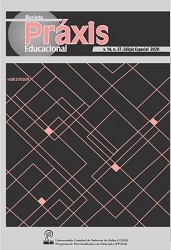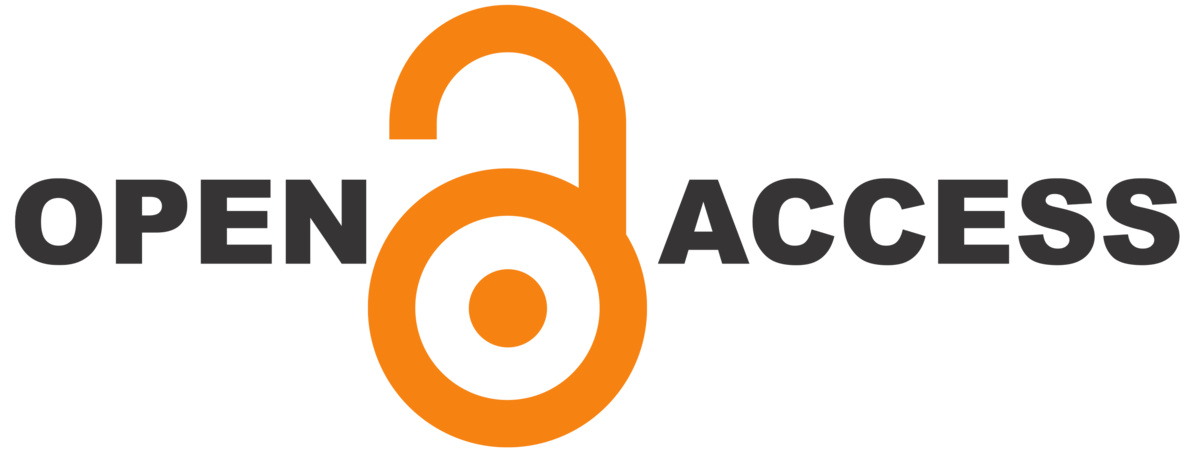LA INVESTIGACIÓN Y EDUCACIÓN DE DIEZ MESES PARA EFECTUAR LA RETROALIMENTACIÓN CORRECTIVA PARA LA PRAGMÁTICA DEL SEGUNDO IDIOMA (L2) EN IRÁN
DOI:
https://doi.org/10.22481/praxisedu.v16i37.6172Palabras clave:
Solicitudes por correo electrónico, Downgraders sintácticos, Retroalimentación correctiva, Competencia pragmática L2Resumen
La retroalimentación es cualquier información proporcionada sobre la precisión y la idoneidad de una respuesta. Para determinar el efecto de la retroalimentación en lengua nativa y persa en la lectura y escritura en estudiantes bilingües (kurdos-farsi), se seleccionaron 45 estudiantes de primaria mediante el método de muestreo por conglomerados en Irán. En este documento, los estudiantes se dividieron en tres grupos distintos: el primer grupo experimental que recibió comentarios en su idioma nativo, el segundo grupo experimental que recibió comentarios en idioma nativo y el grupo de control que no recibió comentarios. Se utilizó una prueba de rendimiento académico diseñada por un investigador para recopilar los datos. Los resultados del análisis de covarianza mostraron que proporcionar retroalimentación en el idioma nativo tuvo un efecto significativo en la lectura y escritura de los estudiantes bilingües y hubo una diferencia significativa entre el primer grupo experimental (que recibió retroalimentación en el idioma nativo) y el grupo de control (que no recibir comentarios). . Pero no hubo diferencias significativas entre el segundo grupo experimental (recibió retroalimentación en farsi) y el grupo de control. Estos hallazgos mostraron que proporcionar comentarios en idioma farsi no influyó significativamente en el progreso de lectura y escritura de los estudiantes bilingües. Con base en los hallazgos del presente estudio, se puede concluir que proporcionar comentarios sobre el idioma nativo a los estudiantes bilingües puede ser efectivo para mejorar su rendimiento.
Descargas
Citas
Alcón-Soler, E. 2005. Does instruction work for learning pragmatics in the EFL context? System 33(3). 417–435.
Alcón-Soler, E. 2007. Fostering EFL learners’ awareness of requesting through explicit and implicit consciousness-raising tasks. In M. De Pilar Garcia Mayo (ed.), Investigating tasks in formal language learning, 221–241. Bristol: Multilingual Matters.
Alcón-Soler, E. 2008. Learning how to request in an instructed language learning context. Bern: Peter Lang.
Alcón-Soler, E. 2013. Mitigating email requests in teenagers’ first and second language academic cyber-consultations. Multilingua 32(6). 779–799.
Alcón-Soler, E. 2015. Pragmatic learning and study abroad: Effects of instruction and length of stay. System 48. 62–74.
Bardovi-Harlig, K. 2010. Exploring the pragmatics of interlanguage pragmatics: Definition by design. In A. Trosborg (ed.), Pragmatics across languages and cultures, 219–260. Berlin: De Gruyter Mouton.
Barron, A. 2008. The structures of requests in Irish English and English English. In K. Schneider & A. Barron (eds), Variational pragmatics, 35–68. Amsterdam: John Benjamins.
Antsyferova L. I. (1994). Personality in difficult living conditions: rethinking, transformation of situations and psychological protection / L. I. Antsyferova. // Psychological journal. No. 1, p.3-18
Martínez-Flor, A. 2008. The effects of an inductive-deductive teaching approach to develop learners’ use of request modifiers in the EFL classroom. In E. Alcon (ed.), Learning how to request in an instructed language learning context, 191–225. Bern: Peter Lang.
Martínez-Flor, A. & Y. J. Fukuya. 2005. The effects of instruction on learners’ production of appropriate and accurate suggestions. System 33. 463–480. Martínez-Flor, A., E. Usó-Juan & A.
Fernández-Guerra. 2003. Pragmatic competence and foreign language teaching. Spain: Servei de Publicacions de la Universitat Jaume I, Castello.
Nguyen, T.T.M. 2008. Modifying L2 criticisms: How learners do it? Journal of Pragmatics, 40 (4). 768–791.
Nguyen, T.T.M., T.H. Pham & M.T. Pham. 2012. The relative effects of explicit and implicit formfocused instruction on the development of L2 pragmatic competence. Journal of Pragmatics 44 (4). 416–434
Nguyen, T.T.M., H. Do, T.A. Nguyen & T. Pham. 2015. Teaching email requests in the academic context: A focus on the role of corrective feedback. Language Awareness, 24(2). 169–195.
Nipaspong, P. & S. Chinokul. 2010. The role of prompts and explicit feedback in raising EFL learners’ pragmatic awareness. University of Sydney Papers in TESOL 5. 101–146.
Salsbury, T. & K. Bardovi-Harlig. 2000. Oppositional talk and the acquisition of modality in L2 English. In B. Swierzbin, F. Morris, M.E. Anderson, C.A. Klee & E. Tarone (eds.), Social and cognitive factors in second language acquisition, 57–76. Somerville, MA: Casadilla Press.
Sheen, Y. 2010a. The role of corrective feedback in second language acquisition: An introduction to the special issue. Studies in Second language Acquisition 32(2). 169–179.
Sheen, Y. 2010b. Differential effects of oral and written corrective feedback in the ESL classroom. Studies in Second Language Acquisition 32(2). 203–234.
Shintani, N., R. Ellis & W. Suzuki. 2014. Effects of written feedback and revision on learners’ understanding and use of two English grammatical structures, Language Learning 64(1). 103–131.
Swain, M. 1995. Three functions of output in second language acquisition. In G. Cook & B. Seidlhofer (eds), Principles and practice in applied linguistics, 125–144. Oxford: Oxford University Press.
Taguchi, N. 2011. Teaching pragmatics: Trends and issues. Annual Review of Applied Linguistics 31. 289–310.
Taguchi, N. 2015. Instructed pragmatics at a glance: Where instructional studies were, are, and should be going. State-of-the-art article. Language Teaching 48. 1–50.
Takahashi, S. 2001. The role of input enhancement in developing interlanguage pragmatic competence. In K. Rose & G. Kasper (eds.), Pragmatics in language teaching, 171–199. New York: Cambridge University Press.
Takahashi, S. 2005. Noticing in task performance and learning outcomes: A qualitative analysis of instructional effects in interlanguage pragmatics. System 3. 437–461.
Takahashi, S. 2010. The effect of pragmatic instruction on speech act performance. In A. Martínez-Flor & E. Usó-Juan (eds.), Speech act performance: Theoretical, empirical and methodological issues, 127–144.
Amsterdam: John Benjamins. Takimoto, M. 2006. The effects of explicit feedback on the development of pragmatic proficiency. Language Teaching Research 10. 393–417.
Takimoto, M. 2009. Exploring the effects of input-based treatment and test on the development of learners’ pragmatic proficiency. Journal of Pragmatics 41. 1029–1046.
Yuan, Y. 2001. An inquiry into empirical pragmatics data-gathering methods: Written DCTs, field notes and natural conversations. Journal of Pragmatics 33(2). 271–292.
Antipov V.V. (2004). Psychological adaptation to extreme situations / V.V. Antipov. -
:Vlados. Press, p.174.
Arakelov, G. G. (2008). Stress factors affecting the formation of personality psychosocial stability during the student years / G. G. Arakelov, V. V. Arshinova, G. E. Zhdanova. // Psychological science and education. №2, p.52-60
Descargas
Publicado
Cómo citar
Número
Sección
Licencia
Você é livre para:
Compartilhar - copia e redistribui o material em qualquer meio ou formato; Adapte - remixe, transforme e construa a partir do material para qualquer propósito, mesmo comercialmente. Esta licença é aceitável para Obras Culturais Livres. O licenciante não pode revogar essas liberdades, desde que você siga os termos da licença.
Sob os seguintes termos:
Atribuição - você deve dar o crédito apropriado, fornecer um link para a licença e indicar se alguma alteração foi feita. Você pode fazer isso de qualquer maneira razoável, mas não de uma forma que sugira que você ou seu uso seja aprovado pelo licenciante.
Não há restrições adicionais - Você não pode aplicar termos legais ou medidas tecnológicas que restrinjam legalmente outros para fazer qualquer uso permitido pela licença.












